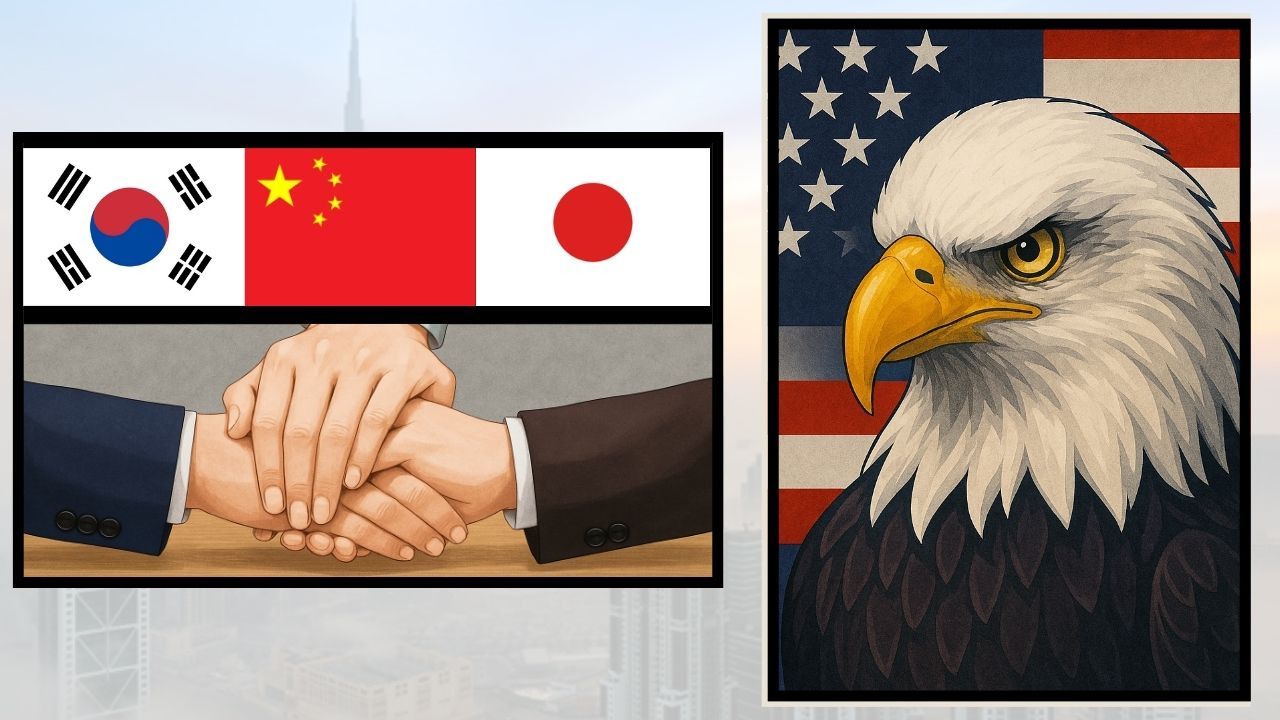Share
Homepage
News
China, Japan, South Korea Unite to Counter U.S. Tariffs: Economic and Trade Implications
China, Japan, South Korea Unite to Counter U.S. Tariffs: Economic and Trade Implications
01 tháng 4 2025
China, Japan, South Korea Unite to Counter U.S. Tariffs: Economic and Trade Implications

Joint Response to U.S. Tariffs
China, Japan, and South Korea have announced plans to coordinate their response to recent U.S. tariffs, signaling a potential shift in the global trade landscape. According to Chinese state media, the three economic powerhouses are seeking ways to mitigate the impact of Washington's trade policies while strengthening regional economic cooperation.
The move comes amid escalating trade tensions between the U.S. and its major trading partners, with tariffs affecting various industries, from technology to automotive and raw materials. This unprecedented trilateral coordination could reshape supply chains and trade policies across Asia.
Key Economic Implications
- Disruptions in Global Trade: As three of the world’s largest economies, any coordinated action by China, Japan, and South Korea could create significant challenges for U.S. imports and exports.
- Impact on Supply Chains: Many multinational corporations rely on supply chains that pass through these three countries. Retaliatory measures or shifts in trade policies could disrupt operations and increase costs for businesses worldwide.
- Currency and Financial Market Reactions: The prospect of a trade conflict escalation could influence currency exchange rates, stock markets, and investor confidence in the region.
- Bilateral and Regional Trade Agreements: This joint effort might accelerate negotiations on free trade agreements (FTAs) or push forward existing regional economic partnerships, such as the Regional Comprehensive Economic Partnership (RCEP).
Potential Geopolitical Consequences
- Stronger Regional Alliances: By collaborating on trade strategies, China, Japan, and South Korea may strengthen their economic ties and reduce reliance on U.S. trade relations.
- Political Tensions with Washington: A unified response to tariffs could increase diplomatic tensions between these Asian economies and the U.S., possibly leading to further trade restrictions or negotiations.
- Impact on U.S. Manufacturing and Consumers: American industries that depend on imports from these countries might face higher costs, potentially affecting consumer prices and inflation.
Conclusion
The joint response of China, Japan, and South Korea to U.S. tariffs marks a critical moment in global trade relations. As these nations explore countermeasures and alternative trade partnerships, the economic and geopolitical landscape could experience significant changes. Businesses and investors should closely monitor developments to anticipate potential risks and opportunities in the evolving trade environment.
Stay updated for more insights on the ongoing trade discussions and their global impact.
Infofinance.com
#PetronasFire #Malaysia #OilAndGas #IndustrialAccident #GasPrices #PetronasPipeline #EnergySafety #Economy
All information on our website is for general reference only, investors need to consider and take responsibility for all their investment actions. Info Finance is not responsible for any actions of investors.
Related news
29 Jun 2025